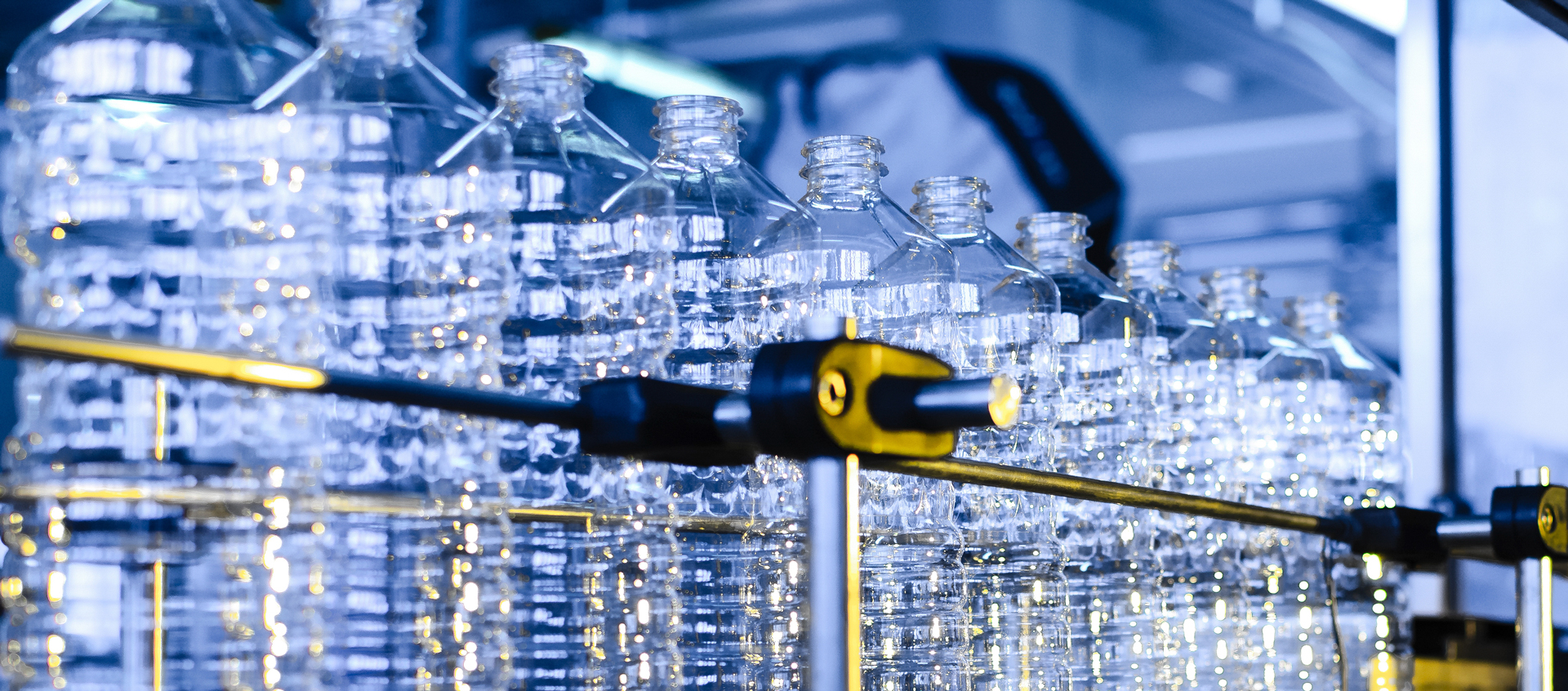Sustainability
PETCON respects the environmental ethics responsible for the protection, use, and continual maintenance of the biodiversity, productivity, and regeneration capacity of the natural environment. The impetus behind economic and social success through the ecological use of plastics should not cause damage to ecosystems, and is a standard that is highly respected by Petcon.

Here are some facts about PET
PET is a remarkably energy-efficient packaging material. Add to that its strength, versatility, and recyclability, and PET boasts an excellent sustainability profile. Although the feedstocks for PET are petroleum based, the environmental impact of PET is very favorable in comparison to glass, aluminum and other container materials. PET’s exceptional capacity-to-weight ratio is a key to its energy efficiency, putting more product in less packaging, utilizing less weight and less fuel for transporting. Ongoing advances in technology continue to decrease the weight of PET containers and to boost the energy efficiency of PET even more. For example, a two-liter PET bottle weighed approximately 68 grams in 1980; today it weighs between 42 and 45 grams.
PET: A Responsible & Sustainable Use of Oil
There’s a common misperception that plastics use a large amount of the world’s petroleum.
Less than 4% of the world’s oil production goes to produce all types of plastics. PET accounts for less than ½ of 1 percent.*
Because PET is fully recyclable, it’s a highly sustainable material. Every time a PET container is recycled, its petroleum feedstocks can be recaptured and reused. The outstanding recyclability of PET further enhances it sustainability, providing an effective and efficient means of recapturing and reusing the energy and resources of its raw materials.
Biodegradable Plastic

When plastic (or any other material) degrades from the action of naturally occurring microorganisms, such as bacteria, fungi and algae. Biodegradation can occur in either aerobic (with oxygen) or anaerobic (without oxygen).
Petcon manufactures bottles using the ENSO additive. ENSO accelerates the natural biodegradation of plastics in biologically active landfills and anaerobic digesters as validated by independent certified laboratories using internationally recognized test methods. Plastics enhanced with ENSO are also FDA recognized materials which are deemed “food grade”.
An important characteristic of ENSO bottles is the ability to maintain the same physical properties (shelf life, texture, appearance, oxygen transfer rate, etc.) as traditional PET plastic bottles and the ability to be recycled alongside traditional PET bottles. Many other products on the market have a severely reduced shelf life and contaminate the PET recycling stream.
Although many people assume PET can only be recovered and recycled into non-food items such as carpet, clothing and engineering applications, technological advances over the past decade have made it possible to create recycled PET that meets the same hygienic and safety standards as virgin PET..
